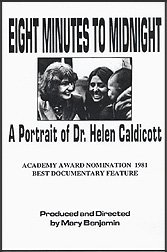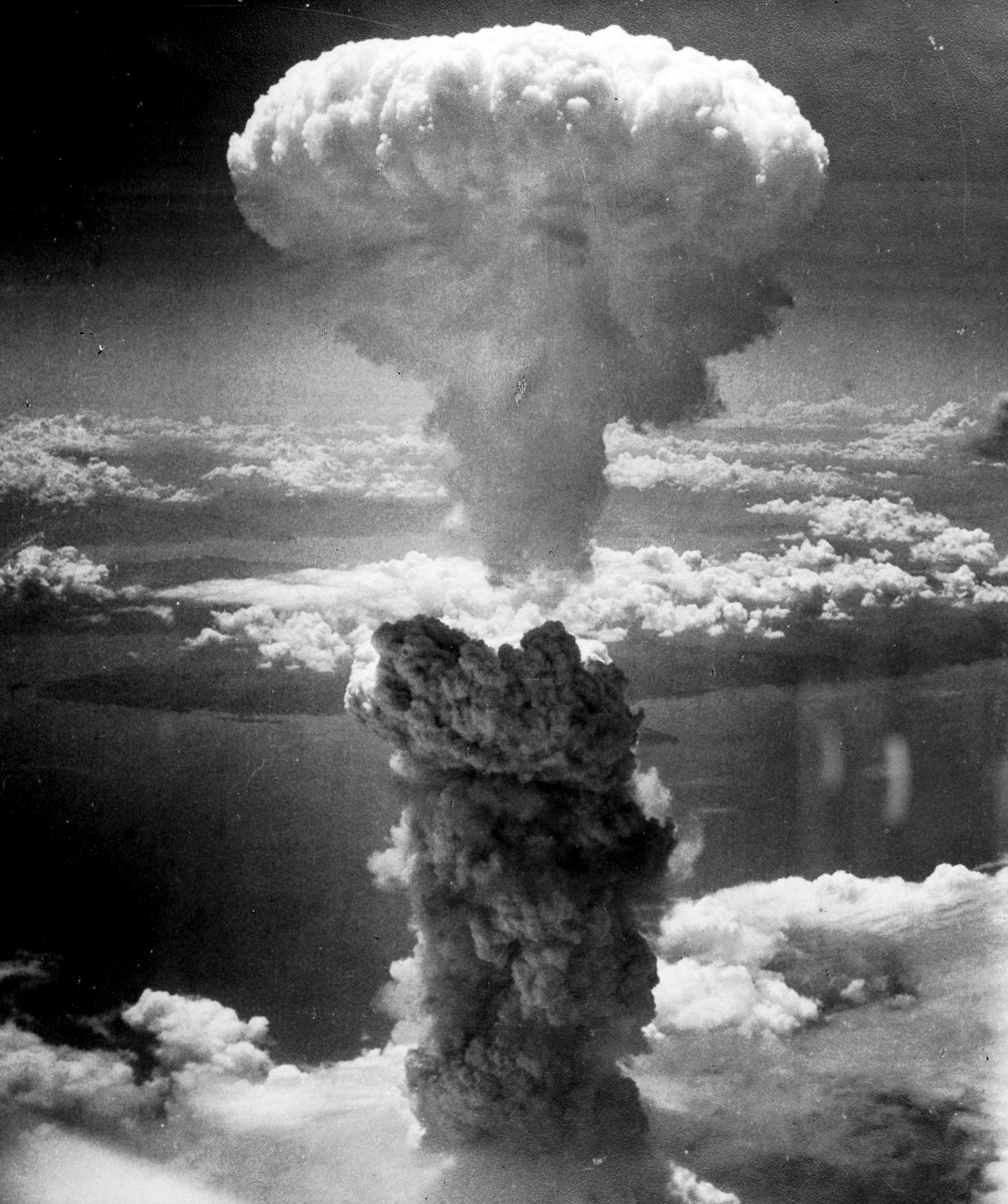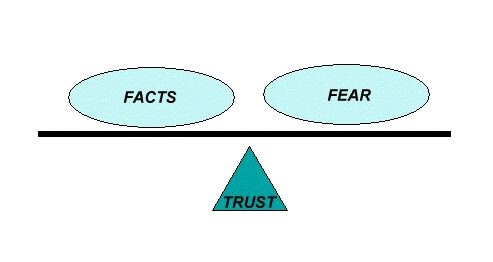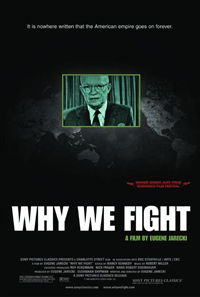
Saint Josemaría Escrivá
(Thursday, January 9, 1902 – Thursday, June 26, 1975), (also known as Jose María or Josemaría Escrivá de Balaguer y Albas, born José María Mariano Escriba Albas) was a Spanish Catholic priest and founder of the Prelature of the Holy Cross and Opus Dei, popularly, Opus Dei. He was canonized by Pope John Paul II, who declared Saint Josemaria as "counted among the great witnesses of Christianity." (link)
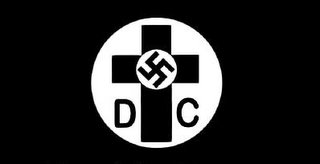
Theologians Under Hitler
In the days after World War II, a convenient story was told of church leaders and ordinary Christians that defied the Nazis from the beginning. Recent research has uncovered a very different story. Rather than resisting, the greater part of the German church saw Hitler's rise in 1933 as an act of God's blessing, a new chapter in the story of God among the German people. (link)
The Crusaders' cross,
also known as the Jerusalem cross. This cross was the symbol of the Crusader Kingdom of Jerusalem, which existed for almost two hundred years after the First Crusade. The four smaller crosses are said to symbolize either the four books of the Gospel or the four directions in which the Word of Christ spread from Jerusalem. Alternately, all five crosses can symbolize the five wounds of Christ during the Passion. This symbol can be seen in the 2005 movie Kingdom of Heaven, and is also used in the flag of Georgia. (link)

The Catholic Order of the Holy Sepulchre (formally Equestrian Order of the Holy Sepulchre in Jerusalem) has a foundation myth that connects it with Godfrey of Bouillon or even Charlemagne. According to the Catholic Encyclopedia it is in historical reality a secular confraternity, which gradually grew up around the most central of the Christian holy places. As it was for the deliverance of the Holy Sepulchre that the crusades were organized, so for its defence were military orders instituted. (link)
1. Letter from Escriva to Franco (link)
In the following letter, Opus Dei founder, Escriva, congratulates Spanish dictator Francisco Franco on the union of church and state in Spain. According to Giles Tremlett [1], "Opus Dei's 84,000 members around the world deny [Escriva] actively supported Franco;" however, this document shows that at the very least Escriva admired Franco.
Opus Dei also denies that the organization has a political agenda, and claims that its members have complete freedom as well as personal responsibility for their actions. However, the following quote from Escriva's book The Way, which Alberto Moncada [2] describes as a summary of Escriva's "national catholicism," illustrates how difficult it would be for a member of Opus Dei to reconcile this personal freedom with his counsel:
"Nonsectarianism. Neutrality. Those old myths that always try to seem new. Have you ever bothered to think how absurd it is to leave one's catholicism aside on entering a university, or a professional association, or a scholarly meeting, or Congress, as if you were checking your hat at the door?"[3]
Letter from Josemaría Escrivá de Balaguer
to Francisco Franco, May 23, 1958
The following letter, translated from Spanish (original Spanish text found here) was published in the January-February, 2001 issue of Razón Española (magazine title means Spanish Reason). Copies of this and other letters from Msgr. Escrivá de Balaguer to Franco are kept in the Fundación Nacional Francisco Franco (National Foundation of Francisco Franco) (Marqués de Urquijo, 28, 28008 Madrid, Spain). The originals belong to Generalísimo Franco’s only daughter, Carmen.
To his Excellency Francisco Franco Bahamonde, Head of State of Spain
Your Excellency:
I wish to add my sincerest personal congratulation to the many you have received on the occasion of the promulgation of the Fundamental Principles.
My forced absence from our homeland in service of God and souls, far from weakening my love for Spain, has, if it were possible, increased it. From the perspective of the eternal city of Rome, I have been able to see better than ever the beauty of that especially beloved daughter of the church which is my homeland, which the Lord has so often used as an instrument for the defense and propagation of the holy, Catholic faith in the world.
Although alien to any political activity, I cannot help but rejoice as a priest and Spaniard that the Chief of State’s authoritative voice should proclaim that, “The Spanish nation considers it a badge of honor to accept the law of God according to the one and true doctrine of the Holy Catholic Church, inseparable faith of the national conscience which will inspire its legislation.” It is in fidelity to our people’s Catholic tradition that the best guarantee of success in acts of government, the certainty of a just and lasting peace within the national community, as well as the divine blessing for those holding positions of authority, will always be found.
I ask God our Lord to bestow upon your Excellency with every sort felicity and impart abundant grace to carry out the grave mission entrusted to you.
Please accept, Excellency, the expression of my deepest personal esteem and be assured of my prayers for all your family.
Most devotedly yours in the Lord,
Josemaría Escrivá de Balaguer
Rome, May 23, 1958
References:
[1] "Sainthood beckons for priest linked to Franco: Controversial founder of Opus Dei will becanonised tomorrow," by Giles Tremlett, Madrid, The Guardian, Saturday October 5, 2002.
[2] "Evolution of Opus Dei," by Alberto Moncada. This article was originally published in Spanish as "La Evolucion del Opus Dei en Espana" (Ponencia al VI Congreso Español de Sociología, A Coruña, 1999).
[3] The Way by Josemaria Escriva, founder of Opus Dei.
Posted April 24, 2004 - ODAN Opus Dei Awareness Network
ODAN's Opposition to the Canonization of Josemaria Escrivá de Balaguer
September 11, 2002
ODAN opposes the canonization of Josemaria Escrivá de Balaguer, founder of Opus Dei. Based on the testimonies of thousands negatively affected by Opus Dei, and published evidence from various sources revealing the irregularities surrounding Escriva's beatification and canonization processes, ODAN strongly believes that canonizing Escriva would be a grave mistake which would produce irreparable harm to the Church and leave thousands vulnerable to the deceitful and manipulative practices of Opus Dei. Specific details and reasons for opposing Escriva's canonization follow:
Facts & Irregularities in the Escriva Canonization
The quotes and facts below are taken from Kenneth Woodward's article, "A Questionable Saint, Is Opus Dei's founder fit for canonization?" Newsweek, January 13, 1992; from the official Opus Dei website; from Kenneth Woodward in his book, "The Helpers of God: How the Catholic Church makes Its Saints" National Catholic Register World Notes May 10, 1992; from Kenneth Woodward's article "A Coming-Out Party in Rome, Opus Dei prepares to stand by its man," Newsweek, May 18 1992; from the Vatican website; and from the Catholic Encyclopedia.
1. Based on materials worked up by a team of Opus Dei priests, John Paul II declared Escriva "heroically virtuous" in April 1990.
2. In July 1991, a miraculous healing authenticated, in part, by Opus Dei doctors was attributed to Escriva's intercession.
3. There is no devil's advocate to systematically challenge a candidate's claim to holiness. Thus some Vatican officials said Opus Dei was able to use its influence to manipulate the church's saint-making system for the benefit of its founder.
4. Opus Dei's first prelate, Alvaro del Portillo, who was also Escriva's successor, was a consultor to several congregations and councils of the Holy See, such as the Congregation for the Doctrine of the Faith, the Congregation for the Clergy, the Congregation for the Causes of Saints, and the Pontifical Council for Social Communications. As a member of the Commission for the Revision of the Code of Canon Law, he also helped in the drafting of the current Code that eliminated the "devil's advocate," promulgated by John Paul II in 1983.
5. An Opus Dei member, Dr. Raffaello-Cortesini, a heart surgeon, headed the medical board that reviews potential miracles for the Congregation for the Causes of Saints.
6. Serious charges were brought that Opus Dei prevented critics of Escriva from testifying at church tribunals called to investigate his life. Opus Dei officials insist that 11 critics were heard among 92 witnesses. Several former members were refused a hearing. Among them: Maria del Carmen Tapia, Father Vladimir Feltzman and John Roche.
7. Escriva defended Adolf Hitler. He told Father Feltzman that "Hitler had been unjustly accused of killing 6 million Jews." "In fact he had killed only 4 million."
8. Even some Opus Dei sympathizers, like retired Cardinal Silvio Oddi who served the Vatican for decades in key posts, believe the push to make Escriva a Saint has done Opus Dei "more harm than good". Although bishops are reluctant to criticize Opus Dei openly, says Oddi, many are "very displeased" by the rush to judgment and see "no need for the immediate beatification of their founder."
9. Normally to assess potential saints the Vatican appoints "consultors" who come from the candidate's homeland. Curiously, eight of Escriva's nine judges were Italian - a sign say critics that the congregation wanted to avoid Spanish theologians, many of whom are known to oppose Opus Dei. Opus Dei officials argue that because Escriva was an international figure and lived in Rome, there was no need to have Spanish judges.
10. Opus Dei has refused to let outsiders see the material on which Escriva's "heroic virtues" were judged -- an unprecedented act of secrecy, say priests familiar with the process.
11. Opus Dei officials have claimed that Escriva's cause had been unanimously approved. However Newsweek has learned that two of the judges, Msgr. Luigi De Magistris, deputy head of the Vatican's Holy Penitentiary, and Msgr. Justo Fernandez Alonso, rector of the Spanish National Church in Rome, did not approve the cause. In fact, one of the dissenters reportedly wrote that beatifying Escriva could cause the church "grave public scandal."
12. Under Pope Paul VI, Opus Dei was suspect. Vatican documents show that Paul worried that Opus Dei priests in the Vatican were leaking confidential decisions to Escriva.
13. John Paul II has increased the number of Opus Dei bishops . . . (there were only 4 before, all in Latin America) and granted Opus its own Pontifical "atheneum" in Rome despite objections from the rectors of the Church's established pontifical universities.
14. In 1982 John Paul II awarded Opus Dei a unique status as "personal prelature" which means its clerical and lay members take spiritual direction from their own prelate in Rome and not like other Catholics from their local bishop.
15. Opus Dei's real power is inside the Vatican bureaucracy . . .several ranking cardinals and at least one of the pope's personal secretaries, Father Stanislaw Dziwisz from Cracow are either [Opus Dei] "cooperators" or like the Pope himself, strong sympathizers.
16. Officials who supervise the media-conscious pope's liaisons with television are members of Opus Dei.
17. Officials of the Vatican's Congregation for the Causes of Saints not only gave the cause top priority but, as the official positio on Escriva shows, they also bent rules to exclude damaging evidence about Escriva's character and commitment to the church.
18. The positio claims that the volatile Escriva lost his temper only once, yet many former members who knew him will insist he was routinely abusive of anyone suspected of being an enemy of Opus Dei, including Pope John XXIII and Paul VI. Former numerary Maria del Carmen Tapia relates in her book Beyond the Threshold: A Life in Opus Dei that Escriva routinely lost his temper, and that as secretary in charge of writing down his words and actions, she was not allowed to right down anything negative that she witnessed. She herself was subjected to abusive words from Escriva, who called her the most filthy names, e.g. WHORE, SOW, PIG, and then screamed during this meeting with both men and women present, that someone should "pull down her panties.... and give her a spanking," referring to a fellow numerary woman who had assisted Tapia by mailing letters for her. Regarding this statement, a supporter of ODAN wrote the following: "This is the most bizarre and perverted talk coming from anyone, man or woman, but for a man to say this to an adult woman...for a priest to use this language and make this statement to a woman; for a saint to make this statement, completely perverts not only the rules of civilized behavior, but sanctity itself. There is no excuse for this conduct, no excuse at all. This, in and of itself, belies his sanctity."
19. A Vatican source said, contrary to established procedure, no published writings critical of Escriva were included in the documents given to the judges of his cause; nor did the congregation investigate Escriva's celebrated conflicts with the Jesuits, reports of his pro-fascist leanings and Opus Dei's involvement with the Franco government.
20. 40% of the testimony came from just two men, (Alvaro) Portillo (deceased Opus Dei prelate and Escriva's successor) and his assistant Father Javier Echevarria, (current Opus Dei prelate).
21. Although 1,300 bishops and cardinals from all over the world had written to the Vatican giving positive statements on the Opus Dei founder, only 128 of them had actually met him in person.
22. According to [Woodward's] research, Opus Dei members allegedly have put hundreds of bishops under financial pressure in order to have them send positive reports about Escriva to the Vatican. Especially in the Third World, bishops were allegedly told that financial contributions from Opus Dei might be in jeopardy if they did not answer the request for positive testimony.
23. The "devil's advocate" that had been part of the canonization process before 1983 was replaced by a "relator"; thus the door was open for the rapid canonization of Escriva. (Note that the current Opus Dei prelate at the time, Portillo, was part of the committee that eliminated the devil's advocate.) In the past, it was the job of the devil's advocate to ask "why shouldn't this person be canonized?"
Feedback from ODAN supporters:
(Opinions held by the persons below do not necessarily reflect the views of ODAN, its officers or Board of Directors.)
Joseph I. B. Gonzales, Former numerary, six years
The problem is not the man. It is the institutionalization of the man.
My real concern is that his faults--his harshness, duplicity, or immoderation, for example--should by the fact of canonization render these traits dubiously normative, not only for Opus Dei but for all Catholics as well.
I hope that now that Josemaria Escriva is canonized, his life and the organization he founded will be opened up to the critical perspective that time and reflection by necessity lends to the fair understanding of the lives of the saints. At this point we may perhaps begin to acknowledge the glaring reality of his defects as well as their potentially damaging influence, just as today we easily recognize the vindictiveness of St. Jerome, the rigorism of St. Alphonsus de Liguori, or the neuroticism of St. Therese of Lisieux.
Joseph Gonzales has written the Vocation Trap for the odan website.
Dr. John Roche, Linacre College, Oxford
"I am concerned about the harm that the canonization of Josemaria Escriva will do to the reputation of the whole process of beatification and canonization."
To read Dr. Roche's personal testimony of his experience as a numerary in Opus Dei, please read his True Story, "The Inner World of Opus Dei."
John Roche has also added the following points to the list of Facts and Irregularities in the Canonization of Monsignor Escriva:
1. Words of Monsignor Escriva
"... as Jesus received his doctrine from the Father, so my doctrine is not mine but comes from God and so not a jot or tittle shall ever be changed" (Cronica);"I will pass away, and those who come afterwards will look at you with envy as if you were a relic" (Cronica i, 1971);
". . . when I think of this divine predilection, I feel ashamed" (Cronica i, 1971);
"As we come to know the Work ... not finding other more expressive words of love, perhaps we had to have recourse to scripture: tota pulchra est, amica mea, et macula non est in te (Song of Songs 4:7) ... the Work is tota pulchra ... this wonderful jewel that men admire" (Cronica v, 1960);
2. Words about Monsignor Escriva, from the internal magazine, Cronica, while he still lived
"The heritage of heaven comes to us through the Father" (Cronica i, 1961);
" ... we will bless the Lord ... because He chose our Father as the firm base for a Work projected through all the length and breadth of time" (Cronica i, 1971);
"God's grace prepared the priestly soul of our Father, making it to the measure of Christ's heart, that is open to the multitude that our Lord wanted to call to his Work with the passing of time, and even to all humanity" (Cronica i, 1971);
3. Facts about the Founder
L. Carandell, Vida y milagros de monsenor Escriva ... (Barcelona, 1975), 62-67. On 24 January 1968 Mgr. Escriva solicited the title 'Marquis of Peralta' claiming that there was a family connection. He was granted the title. At the same time his brother, Santiago, solicited the title 'Baron of San Felipe'4. Testimony of former members
During the period 1959-1973, while I was a member of Opus Dei, it was frequently stated publicly at get-togethers of members of Opus Dei, that Monsignor Escriva had stated often that places where important events happened to him during the early years of Opus Dei would become centers of international pilgrimage -- John Roche
In July 1973, in Galway, Ireland, Fr Daniel Cummings, the then Procurator-General of Opus Dei informed me the Monsignor Escriva was divinely inspired to found Opus Dei, that he could not err in matters of the spirit of opus Dei, and that, therefore, as a condition of membership I must believe in that Divine inspiration -- John Roche
"On one occasion the Father was given the news that ... an old priest ... of Opus Dei ... had a severe haemorrhage and was near to death. Monsignor Escriva replied that this son of his lacked supernatural outlook, that he wished to go outside without wearing his cassock" -- Maria Angustias Moreno, El Opus Dei, 1993, 57.
Other comments about the canonization
Kenneth L. Woodward, Newsweek New York, NY
Fair to Opus Dei? Letter to the Editor of First Things, 61, March 1996, 2-7
I am pleased that Richard John Neuhaus ("The Work of God," November 1995) finds me "often fair-minded," though I suspect that is only when my views mirror his -- as they often do. That he detects a "long-standing hostility to Opus Dei" is not quite fair-minded of Father Neuhaus. My writing about Opus Dei has focused almost entirely on the beatification of its founder, not the organization itself. On this point, the only fair-minded conclusion I can reach, given the evidence of the positio itself and interviews with people in Rome involved in the process, is that Opus Dei subverted the canonization process to get its man beatified. In a word, it was a scandal -- from the conduct of the tribunals through the writing of the positio to the high-handed treatment of the experts picked to judge the cause. That Newsweek caught Opus Dei officials making claims that were not true is a matter of record. Escriva may have been a saint -- who am I to judge? but you could never tell from the way his cause was handled. Then, too, there is the matter of the banality of his writings, especially the axioms. Not the sort of stuff, I think, to build a spiritual community around. As for the organization itself, I'm sure it meets the needs of some Catholics. But as a parent, I am naturally inclined to worry about its methods and to take more seriously than does Father Neuhaus the complaints of those who feel they have lost a child to the organization. I, too, thought Jim Martin did a good job in his America piece, and am sorry only that so many folks felt they could not speak on the record. Whatever else it does, Opus Dei strikes fear in the timid and the mitered. I've met some likable people in Opus Dei but I'd hate to have my daughter marry one. To be fair-minded, I wouldn't want her to wed a Jesuit either, though I hope she'd ask one to say the nuptial mass.
Kenneth Woodward is the author of Making Saints, How the Catholic Church Determines Who Becomes a Saint, Who Doesn't, and Why, Simon and Schuster, 1990, in which he writes about Opus Dei and Escriva's beatification on pp. 383-389. One former numerary testifies that this book is on Opus Dei's Index of Forbidden Books, with the most restricted classification.
Revised June 20, 2005.
3. Clerical fascism (link)
Retrieved from Wikipedia
Clerical fascism is an ideological construct that combines the political and economic doctrines of fascism with theology or religious tradition. The term has been used to describe organisations and movements that combine religious elements with fascism, support by religious organisations for fascism, or fascist regimes in which clergy play a leading role. For Catholic clerical fascism, the term Catholic integralism is sometimes used, though Catholic integralism does not necessarily go together with fascism.
1. Examples of clerical fascism
Examples of dictatorships or political movements involving elements of clerical fascism include those of Antonio Salazar in Portugal, Maurice Duplessis of Quebec, Engelbert Dollfuss in Austria, Jozef Tiso in Slovakia, Ante Pavelic and the Ustashe in Croatia, Miklos Horthy in Hungary, the Iron Guard movement in Romania, the Rexists in Belgium and the government of Vichy France. The regime of Francisco Franco Bahamonde in Spain had nacionalcatolicismo as part of its ideology. It has been described by some as clerical fascist, especially after the decline in influence of the Falange beginning in the mid-1940s. With the exception of the Croatian Ustashe movement, scholars debate which other examples in this list should be dubbed, without reservation, clerical fascist.
Some scholars consider certain contemporary movements to be forms of clerical fascism, including Christian Identity and possibly Christian Reconstructionism in the United States; some militant forms of politicized Islamic fundamentalism; and militant Hindu nationalism in India (Rashtriya Swayamsevak Sangh / Bharatiya Janata Party)2. Quote
"Christianity and Democracy are inevitably enemies" Rousas John Rushdoony [1]
3. See also
4. Further reading
- Randolph L. Braham and Scott Miller, The Nazis Last Victims: The Holocaust in Hungary (Detroit: Wayne State University Press, [1998] 2002). (ISBN 0814327370)
- Leon Volovici, Nationalist Ideology and Antisemitism: The Case of Romanian Intellectuals in the 1930s (Oxford: Pergamon Press, 1991). (ISBN 0080410243)
- Nicholas M. Nagy–Talavera, The Green Shirts and the Others: A History of Fascism in Hungary and Romania (Iaşi and Oxford: The Center for Romanian Studies, 2001). (ISBN 9739432115)
- Charles Bloomberg and Saul Dubow, eds., Christian–Nationalism and the Rise of the Afrikaner Broederbond in South Africa, 1918–48 (Bloomington: Indiana University Press, 1989). (ISBN 0253312353)
- Walid Phares, Lebanese Christian Nationalism: The Rise and Fall of an Ethnic Resistance (Boulder, Colo.: L. Rienner, 1995). (ISBN 1555875351)
- Ainslie T. Embree, ‘The Function of the Rashtriya Swayamsevak Sangh: To Define the Hindu Nation’, in Accounting for Fundamentalisms, The Fundamentalism Project 4, ed. Martin E. Marty and R. Scott Appleby (Chicago: The University of Chicago Press, 1994), pp. 617–652. (ISBN 0226508854)
- Partha Banerjee, In the Belly of the Beast: The Hindu Supremacist RSS and BJP of India (Delhi: Ajanta, 1998). (ISBN 8120205042)
- Walter K. Andersen. ‘Bharatiya Janata Party: Searching for the Hindu Nationalist Face’, In The New Politics of the Right: Neo–Populist Parties and Movements in Established Democracies, ed. Hans–Georg Betz and Stefan Immerfall (New York: St. Martin’s Press, 1998), pp. 219–232. (ISBN 0312211341 or ISBN 0312213387)
- Mark Juergensmeyer. The New Cold War?: Religious Nationalism Confronts the Secular State. (Berkeley: University of California Press, 1993). (ISBN 0520086511)
5. Vatican policy
- Anthony Rhodes, The Vatican in the Age of Dictators 1922–1945 (London: Hodder and Stoughton, 1973). (ISBN 0340023943)
- Michael Phayer, The Catholic Church and the Holocaust, 1930–1965 (Bloomington: Indiana University Press, 2000) (ISBN 0253337259)
- Livia Rothkirchen, ‘Vatican Policy and the ‘Jewish Problem’ in Independent Slovakia (1939–1945)’ in Michael R. Marrus (ed.),The Nazi Holocaust 3, section 8, Bystanders to the Holocaust (Wesport: Meckler, 1989), pp. 1306–1332. (ISBN 0887362559 or ISBN 0887362567)
4. Christian fascism (link)
Christian fascism is a term used by some to describe what they see as totalitarian fascist politics in the contemporary Christian right, primarily in the United States.
For example, the Reverend Rich Lang of the Trinity United Methodist Church of Seattle, gave a sermon titled George Bush and the Rise of Christian Fascism in which he said "I want to flesh out the ideology of the Christian Fascism that Mr. Bush articulates. It is a form of Christianity that is the mirror opposite of what Jesus embodied. It is, indeed, the materialization of the spirit of antichrist: a perversion of Christian faith and practice...".
Some who use the term Christian fascism do not describe an existing state of fascism, but rather an emerging proto-fascism, and warn that action is needed to stop the possible emergence of a theocratic fascist state.
Critics of the term "Christian fascism" dismiss it as hyperbolic, and an "ill-advised attack on conservative Christians" [1]See also
- Clerical fascism, on the role of Christianity in European fascist movements between the world wars
- Nazism, on the role of Christianity in the German Nazi movements
- Dominionism, Dominion theology, and Christian Reconstructionism on claims of fascistic tendencies in contemporary Christian Right movements and groups
- Christian Identity, on the militant right-wing movement linked by some to Neo-Nazi ideology.
- Theocracy
- Islamofascism
External links
- Buzzflash: "God is with us", Hitler's Rhetoric and the Lure of "Moral Values"
- Rev. Rich Lang, George Bush and the Rise of Christian Fascism








